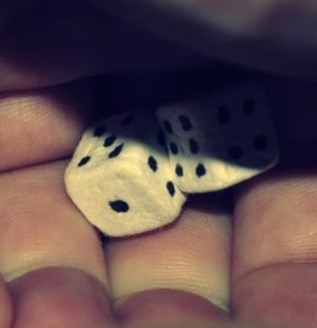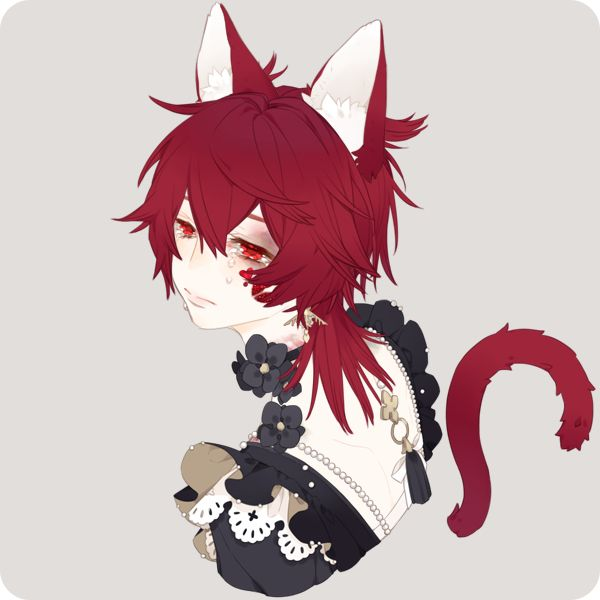I mean, if you looks at the costs of things, 'a cheap meal' is usually like, 1-5 coppers. So, copper is somewhere between $1-$5, very roughly speaking. Which would put even just a 100gp magic sword (a 'basic enchantment') be worth around $10,000. So like, a used car? And a single gold would be like $500, in the realm of a weeks pay irl. And, a platinum piece is $5,000.
But regardless, I assume banking exists, and a lot of these 'thousands of gold' transactions are done via banking guilds or w/e. Its not like the US prints anything bigger than $100 today, though of course a primarily digital economy is radically different from a DnD-esque primarily gold-standard one.
Additionally, I don't know about you, but I rarely award 'chests full of gold' to the players, its usually valuable items; rare gems, art pieces, or magic items themselves.
But yeah, those 'high level magic items' worth like, 100,000gp+, would be roughly analogous to things worth $10-100 million. Which, for 20th level adventurers fighting gods, doesn't seem unreasonable? Like, IRL, the richest people in the world have stuff priced individually at $100million, though those tend to be like, super yachts and mansions, not a single relic sword.
Regardless, the economy is pretty clear that adventuring, even at like level 1, gives quite a bit more money than a 'normal' job gives, even a decent one like a smith. But also, adventuring is pretty goddamn dangerous. (And, also, the game designers kinda need that to be true, otherwise the players should just run a tavern instead of adventuring, at least until the can buy better gear.)
That final fight in the Baldur's Gate 1 expansion where party members can get permanently killed by a hidden spell effect that activates after a while, tho :porky-scared-flipped:
No wealth can save you when your body exploded and you're turned into a ghast.
While everything you say is true, the worldbuilding kinda needs it to be true. Because, otherwise, even lawful good characters questing out of charity would be idiots for not running a business on the side to fund their adventuring.
These worlds are like comic book worlds in a way. They aren't written to be rational, balanced things. They're written, first and foremost, to make adventuring the rational choice for the players.
Its why there's so many ruins full of gold, why the 'fallen civilizations' of thousands of years ago were so vastly more advanced than current civilization (at least in terms of making magic items).
And yeah, 'adventuring groups' are, pretty inevitably, rich fucks. Money is power, and the players generally gain most or all types of power as they progress from level 1-20.
There are ways around this. You can world-build money to not really be that important to questing (which, a lot of these games have something like a 'vow of poverty' or 'variant automatic progression' if you want to accommodate this). You can remove resurrection magic and maybe other spells that cost gold.
But, like a lot of questions of verisimilitude, its a never ending rabbit hole. Some groups won't be satisfied until they have mapped out continent spanning economic systems and financial schemes, with balanced costs for good. Others are fine with the thinnest veneer of 'the economy works fine, don't worry about it'.
Same thing with, like, survival mechanics. With travel. With carry weight, swim speed, religion.
And, either approach is good and fine, I support groups tailoring their games to their own tastes. But it makes it impossible to write a ttrpg for everyone, since to try to keep a sense of verisimilitude up for as many people as possible is to invite rules bloat, for mechanics that only some groups will care about.
Oh sure, and yeah, we should. I've been playing ICON recently, and I've generally liked it's take on 'economy'. Which is: money is a roleplaying concern, as is gear. Have whatever items you want to represent your stats/abilities. It is besides the point, at least as far as 'combat mechanics' go.
It does have 'Dust' as a 'currency' to enchant/fuel things, but its like crystallized magic found in the ancient empire ruins, more than it is 'money'.
And yeah, ‘adventuring groups’ are, pretty inevitably, rich fucks. Money is power, and the players generally gain most or all types of power as they progress from level 1-20.
This was very much literal in old D&D, where Gold=XP.
Edit:
Its why there’s so many ruins full of gold,
Also, I don't really think this part is entirely unreasonable? There are actually like, a couple of old-ass Spanish treasure-galleons that are still sitting on the floor of the ocean somewhere with gold coins in tow, I'm sure.
If a given society had some kind of spontaneous cataclysmic collapse, that didn't come about due to something like a Migration Period (which is not impossible due to this being a fantasy game), I could definitely see some weird old monarch's treasure vault kind of just getting left for the pilfering later on.
That day/week/month wages works clean though. The peice fits for like a legendary painting or violin in real life
Lol, maybe thats not the standard then.
I know 5e's "random loot table" generates most of its higher level gold value in items, gems, and art, with not too much bulk coin, and the PF2e adventure paths I've been running have generated the 'cash flow' to the players mostly with appropriately level magic items.
I don't really remember how 3.5 did it. I know Gygaxian dnd tended to lean on literal 'piles of treausure', so maybe some of the OSR games are still doing that, but I don't really know those games well.
A bunch of the Old School Renaissance games made the silver piece the standard so that gold was an exponent of 10 rather than the other way around. Ultimately though it’s up to the GM to control prices for things in-game and decide if something is sellable at all.
RuneQuest made the silver piece the standard of trade - and that was in 1978!
Because that's what it was back in medieval times. No idea why medieval history freak Gygax dropped the ball on that one. Gold was only used by merchants to settle accounts amongst themselves, or by nobles to hoard wealth.
one of the D&D 3.5 books had a whole section on how the players could effectively torpedo local economies with high value dungeon items. it listed total wealth capacity of various sized villages, hamlets, etc. so basically you would have to haul your shit to the largest capital cities or else accept very rock bottom prices or just trade for essentials and IOUs or maybe land grants. i thought it was a nice touch.
the medieval oligarchic city state of baldur's gate rests on a peasant economy because the landlords don't want to create a school system where a relative abundance of trained wizards cast create food and water, instantly creating a post scarcity society
I could go to the elemental plane of earth and find a gold nugget larger than faerun.
I it is something like the cost of several horses to make rings of infinite create food/water.
The only things of any real value in dnd are trade goods with use value. Diamonds to resurrect people, dragon repellant, healing potions
My go to method for dealing with an evil king until the DM stops me is just creating infinite food to destroy the economy and bring about falgsc
Having to pay for things with a thousand of something kind of makes the logic of the world break down if you look at it too closely. Like, no one is counting those, you would need scales that are big enough to fit thousands of coins to weigh them + a huge set of counterweights, and this is in a world where things like Lighten Object exist. There is no way to make commerce make sense in a way that isn't very inconvenient to the players.
There is no way to make commerce make sense in a way that isn’t very inconvenient to the players.
Unless the players aren't meant to actually be carrying around the gold :graeber:
There could be a common enchanted item that allows one to tally such quantities instantly, right? Just make it something a wealthier store will always have.
Then again, having a big set of scales would work just as well, especially if they are steel and have enchanted counterweights or something like that to not be a huge pain, but then that raises the issue of gold coins having a weight . . .
Daggerfall handles this surprisingly well by just having banks that distribute bank notes at a fee of +1% of the note's value. That way handling paying the price of objects becomes nearly as simple in the game as it is for the players of just writing down a value.
you would need scales that are big enough to fit thousands of coins to weigh them + a huge set of counterweights,
i mean you can always pay in 100 x 10 coins or 10 x 100 coins or whatever is required by the scales available. yes it's inconvenient, but it's not impossible like you're making it out to be lol
The game i'm playing in now doesn't use money at all. We're trapped on another plane where every one is just trying to survive the extremely harsh conditions and resource scarcity so everything is based on trade with values fluctuating wildly based on what different settlements need. It's made accumulating wealth basically impossible because it doesn't matter how much that set of plate armor is worth because it's never worth carrying 4 extra bulk hopping you can find someone who will not only trade for it but also has something you want.
I get around this by having the economy not make sense. Silver and copper coins are annoying and feel insignificant so I just make everything cost gold coins. The scale makes no sense, I just make up on the fly how much something costs.
the master of coin is just debasing the currency, these 'gold' coins have less precious metal in them than a goldfish :think-about-it:
200 CP = 20 SP = 2 EP = 1 GP = 1/5 PP
The exchange rate was set by a top economist, there's no changing it now
IIRC the origin of the odd pricing/weights of coins is in trying to make encumbrance matter. Nobody uses encumbrance rules anymore so you can just ignore the weights.
I don't play D&D but in my home fantasy GURPS games we run 250 coins to the pound, 1:10:100 value for copper/silver/gold. With the alternate prices in GURPS, this makes gold feel really valuable; eg a greatsword would be 8gp, and a full set of heavy plate around 120gp, while a big gold ring that weighs 1/4lb is worth around 90gp.
Clearly the default D&D setting is under the sway of extremely powerful guilds that upcharge like a motherfucker.
In our DnD games, different metal coins would be from different kingdoms/nations. They would all have the same value, so copper coins were much much bigger than gold coins, but ultimately 1gp = 1sp = 1cp , and the real trouble is if the seller thinks your foreign money is worth taking at that moment.
I think it's just the dissonance of trying to shoehorn capitalist economics into a feudal setting. In most feudal societies, the money economy, in the sense of everything having a monetary value and having few barriers to exchange that commodity for money and vice versa, isn't fully formed but coexist among different forms of exchange like barter and feudal obligations. The money economy mostly exists within the context of merchants and traders.
Some peasant finding a valuable ring doesn't mean much if they live in a feudal society where peasants can't own personal property, meaning anything they touch automatically belongs to their feudal landlord. The peasant can't quickly pawn off the ring since most merchants with that amount of coin aren't wasting time in some shitty hamlet. And if the peasant somehow flees to a medieval city in order to find a merchant to sell the ring, well many medieval cities require papers in order to actually enter in the city as a precaution towards fleeing serfs among other things, so the peasant would have to either bribe the guard somehow or sneak their way in. And once in, the merchant would almost certainly offer a price much lower than what the ring's worth since the peasant is in a completely precarious position by virtue of being a refugee.
In a weird way, the high fantasy imagery of some adventurer standing triumphantly over a huge pile of gold coin is just another example of capitalist realism. Gold coin is just a placeholder for money, and we associate money with wealth and power because in a capitalist society with a fully formed money economy, money is wealth and power. But this is not so in a feudal society, where the source of wealth and power is not money but land. The way to make it big in a feudal society is to be created a hereditary title through faithful service to your liege. That or be a warlord who's able to integrate to polite feudal society through a strategic loveless marriage.












